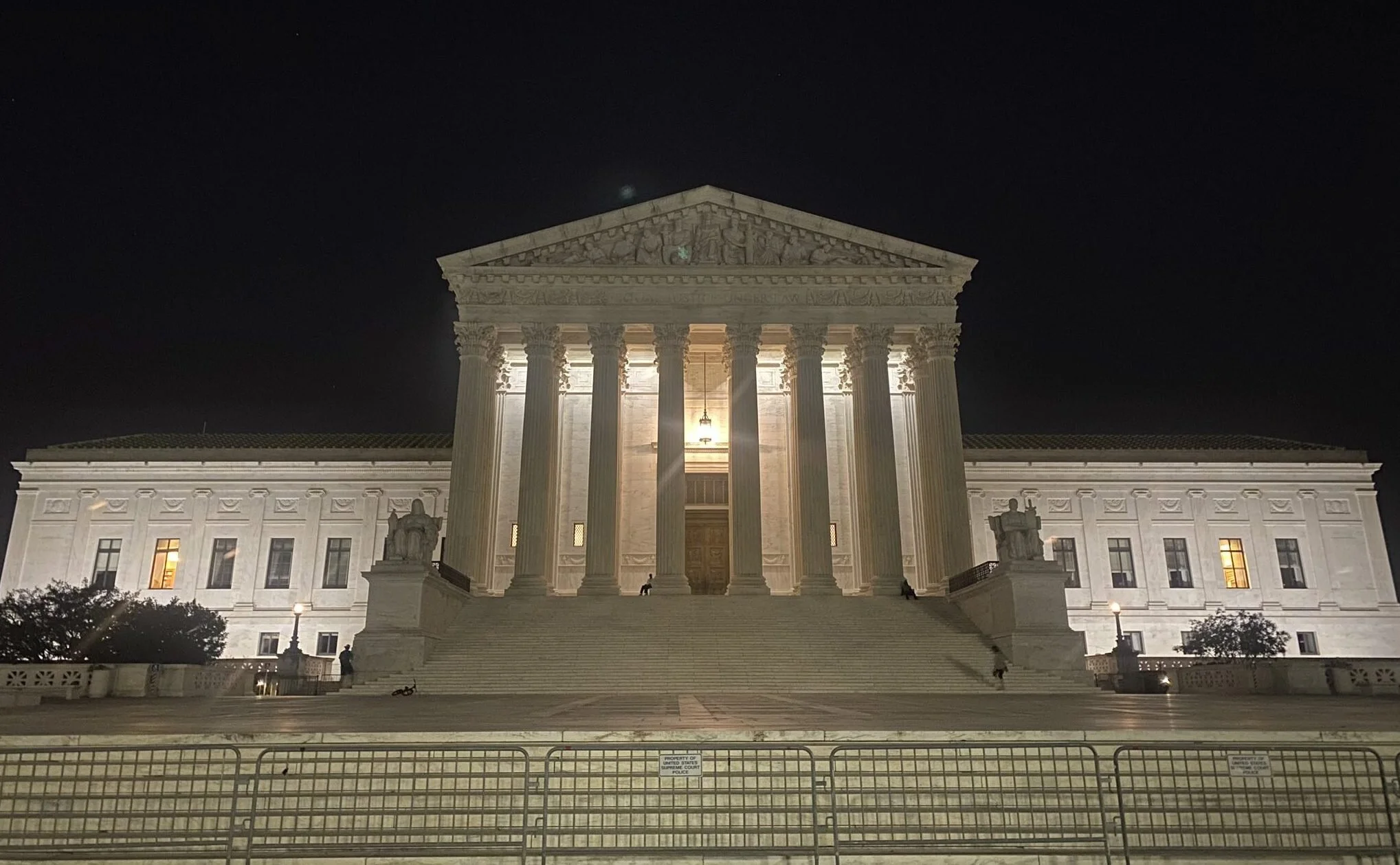Public schools have a unique duty to reasonably maintain a safe academic environment for their students. While this is an undisputed fact, methods aimed at ensuring this safety have surfaced as problematic in nature. The Supreme Court must expand their application of the Fifth Amendment right against self-incrimination in public school settings in order to ensure adequate due process is being awarded to students subjected to schoolhouse interrogations.
Lawmakers and legal scholars have recently raised growing concern over the abundance and impact of the Court’s emergency and summary orders––which Professor William Baude termed “the shadow docket” in 2015. The shadow docket has gained national attention as death penalty appeals, presidential election disputes, and COVID-related cases are brought to the Court.
Read MoreIn January 2021, South Korea’s Seoul Central District Court ordered the Japanese government to pay 100 million won (approximately $91,000) in damages to each of the twelve plaintiffs in Hee Nam Yoo v. Japan. The plaintiffs in this case were former Korean ‘comfort women,’ a euphemism for women and girls—mostly in their teens and twenties—who were forced into sexual slavery by Japan’s military during the Second World War (WWII).
Read MoreThe 1972 Clean Water Act (CWA) is a landmark piece of legislation that protects American waters from pollutants and discharges. To regulate pollution discharges, the drafters of the CWA created a legal framework, the National Pollutant Discharge Elimination System (NPDES), that requires agencies to obtain an NPDES permit for pollution discharges that originate “from a point source” such as pipes or man-made ditches and enter certain bodies of water, i.e. navigable waters and surface water bodies termed “waters of the United States.” However, the definitions of “point source” and “waters of the United States” in the CWA have proven too vague and have thus been the source of much litigation.
Read MoreMuch has changed in the United States legal system since 1812, but the partisan practice of gerrymandering, or drawing political districts to favor one party over another, remains. Since the first salamander-looking “gerrymander” created by 1812 Governor of Massachusetts Elbridge Gerry, gerrymandering techniques have evolved to include “cracking” districts to spread out a certain voting bloc and “packing” as many voters of one bloc into one district. Regardless of technique, this practice essentially allows politicians to pick their voters. With modern technology, computer algorithms can now account for a multitude of other factors including voter demographics in drawing a district, making the redistricting process limitless in its vulnerability to partisanship. This phenomenon has raised a key legal question: When does partisan gerrymandering become constitutionally impermissible?
Read MoreAn estimated 168 million children between the ages of 5-17 are presently engaged in some form of child labour or enslaved labor globally, with millions subjected to bonded labour, child soldiering, or sexual exploitation. Though this atrocity occurs within many spheres, the chocolate industry is an infamous perpetuator. Between 2013 and 2017, over 1,000 children working in cocoa agriculture in areas of medium and high cocoa production were victims of forced labour at the hands of someone outside their family. And this number fails to account for the hundreds of children forced to labor by their parents and other relatives. Working on plantations that annually supply 60% of all cocoa to transnational companies such as Nestle and Cargill, children in Ghana and Cote d’Ivoire are overworked, brutally treated, and deprived of their education.
Read MoreFor decades, physician-assisted suicide (PAS) and the right to die have been at the center of numerous legal battles. The “right to die” covers more than just “pulling the plug” on life-sustaining treatment. It also includes suicide, which is done without the assistance of a physician, as well as other practices that are done with the guidance of a physician. Such practices include passive euthanasia, assisted dying, active euthanasia, and most recently, physician-assisted suicide. Although the legality of PAS largely depends on the attitude of the respective state government, one could argue that the banning of physician-assisted suicide violates the Due Process clause of the 5th Amendment because the choice to end one’s life during unceasing pain—especially when one’s death is imminent— should be included in one’s right to life. Furthermore, a court’s refusal to recognize the right to die allows the actions of PAS-administering doctors to fall under “affirmative aid in dying,” which exposes doctors to prosecution for murder.
Read MoreOn September 17, the Commonwealth of Pennsylvania began printing ballots for November’s election after the Pennsylvania Supreme Court made its final decisions regarding ballot access. In southeastern Pennsylvania alone, over 600,000 voters had already requested mail-in ballots. Members of the major parties awaited the chance to cast their vote for the presidential ticket of their choice. However, not all the presidential tickets were actually represented on the ballot; the Green Party’s candidates for president and vice president had been struck from the ballot over a filing error in the Pennsylvania Supreme Court case In Re: Nomination Paper of Scroggin. An examination of this case and the court that decided it reveals that partisan ballot decisions like In Re: Scroggin undermine democratic principles and subvert evenhanded justice while enabling the duopoly of the major parties.
Read MoreOn April 17th, 2019, U.S. Secretary of State Mike Pompeo expanded the implementation of the Cuban Liberty and Democratic Solidarity (LIBERTAD) Act of 1996. "For the first time," he announced, "claimants will be able to bring lawsuits against persons trafficking in property confiscated by the Cuban regime." The Trump Administration activated Title III of the LIBERTAD Act, a statute that had been suspended by every presidential administration since the Act's creation. Title III secures the right of U.S. nationals to claim property that had been confiscated by the Cuban government on or after January 1st, 1959 from any individual using, selling, or benefiting from it.
Read More








